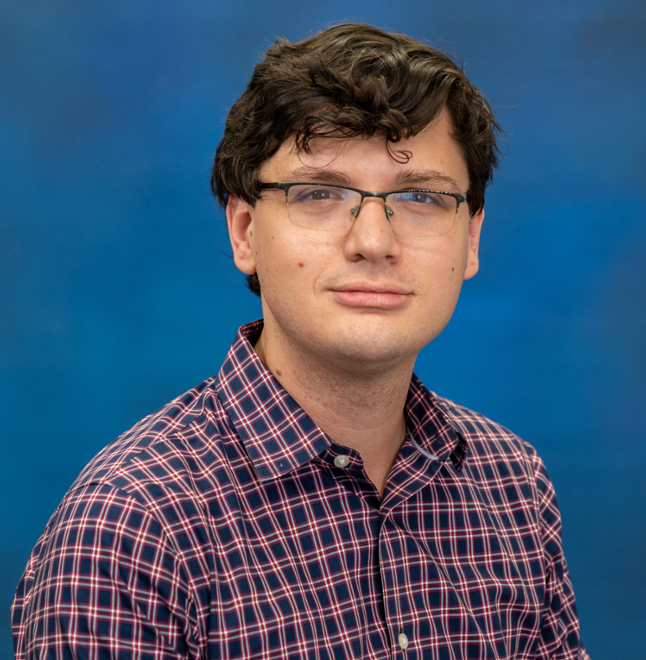COSAM News Articles 2021 October COSAM Discipline-Based Education Research cluster seeks to investigate and improve learning
COSAM Discipline-Based Education Research cluster seeks to investigate and improve learning
Discipline-based education research, or DBER, uses evidence-based knowledge to improve teaching practices.
The College of Sciences and Mathematics (COSAM) has brought together a strong, cross-disciplinary team with faculty in all five departments within the college.
Although DBER is well known in college-level research, Auburn is one of very few universities to house DBER faculty in all five of the traditional STEM areas within COSAM. The DBER group investigates instructional strategies, develops open access educational resources, and assesses learning to increase access for all students in STEM, making an impact in the future workforce.
Meet the DBER team:
Cissy Ballen, Assistant Professor, Department of Biological Sciences

Research summary: The Ballen lab conducts research on biology education and STEM equity through investigations of the causes and consequences of gaps in science literacy, and how educators can design their courses to minimize barriers to success. By developing an integrated experimental and theoretical research program we explore how classroom and social influences shape student learning, personal and professional development, and career trajectories.
- The impact of going beyond a ‘value-free’ biology curriculum with award from NSF
- How students relate to scientists impacts student retention: A $1 million NSF award funds a study to examine data literacy instruction with direct connection to STEM
- COSAM researches disparity between scientists featured in biology textbooks and students
- COSAM Faculty Focus: Dr. Cissy Ballen researches reducing barriers in the classroom to promote student success
- The Ballen Lab
Eric Burkholder, Assistant Professor, Department of Physics

Research summary: Problem-solving is an essential skill for scientists and engineers to develop if they are to become successful practitioners in their fields. We carry out various studies characterizing cognitive and social facets of problem-solving, how to better assess problem-solving, and how to teach problem-solving. This work is integrated with quantitative and qualitative studies of equity within STEM more broadly.
Jordan Harshman, Assistant Professor, Department of Chemistry and Biochemistry

Research summary: Graduate education in chemistry is crucial to developing the next generation of scientists to solve many of the world’s largest challenges. The Harshman Research Group investigates effective graduate training, knowledge and skills requirements and outcomes, and mentoring strategies. We also have a significant undergraduate focus that seeks to characterize instructional practices in undergraduate STEM courses.
Melinda Lanius, Assistant Professor, Department of Mathematics and Statistics

Research summary: The broad goal of our research group is to understand how undergraduate students interact with and experience the university mathematics education system. We have approached this topic in a variety of ways, from exploring classroom factors that increase mathematics anxiety, measuring learning outcomes under different pedagogies, and considering the impact of graduate teaching assistant training(s) on the classroom experience. Once we have identified vulnerabilities in our educational systems,gaps where students or teachers are inadequately supported, we can improve the system(s) for all.
Karen McNeal, Molette Endowed Professor, Department of Geosciences

Research summary: The McNeal Research Group investigates geoscience teaching and learning challenges in formal and informal settings. We examine how to improve teaching and learning around spatial thinking, Earth system science, and climate change; how to increase student engagement in the classroom; and, how to broaden participation in the field. The implementation and evaluation of the co-production of science and the assessment of climate change information/ communication approaches are also key areas in the McNeal research group. Our work ties together the affective and cognitive domains of learning and we use a suite of tools including psychomotor tools (e.g., eye-tracking and skin biosensors), psychometric tools (e.g., concept inventories, attitudinal surveys), and open-ended approaches (e.g., interviews, concept-maps, etc.) in our research.
- McNeal Leads First NSF Research Traineeship in Alabama Auburn’s NRT Climate Resilience Program
- What is Geocognition Research at Auburn?
- Auburn’s NRT Climate Resilience Program
- Geocognition Research Group
Through new approaches to education that are grounded within STEM disciplines, DBER can help to empower students and encourage a new generation of diverse scientists.
Visit the DBER website for more resources.
Latest Headlines
-
07/09/2024
-
Summer Bridge Program celebrates 21 incoming Auburn students as they prepare for future STEM careers07/02/2024
-
07/02/2024
-
06/17/2024
-
06/07/2024
